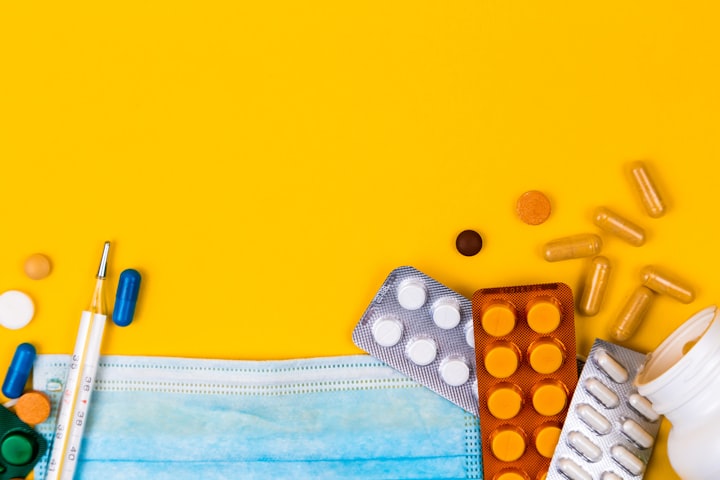7 Health Benefits of Drinking Enough Water, According to Science
Benefits of Drinking water

Water makes up about 60% of the human body.
The 8-ounce (237-mL) rule suggests that you drink eight 8-ounce (237-mL) glasses of water every day.
Although there isn't much science behind this statement, staying hydrated is crucial.
Here are seven health benefits of drinking plenty of water that have been scientifically proven.
1. Assists in improving physical performance.

Your physical performance may decrease if you do not stay hydrated.
This is especially critical during strenuous exercise or in hot weather.
Even if you lose only 2% of your body's water capacity, dehydration can have a visible effect. Sweating, on the other hand, can cause athletes to lose as much as 6–10 percent of their body weight.
This can result in a change in body temperature, a decrease in motivation, and an increase in weariness. It can also make physical and mental exercise feel much more challenging.
This has been proven to be prevented by optimal hydration, which may also lessen the oxidative damage that occurs during high-intensity exercise. When you realise that muscle is made up of around 80% water, this isn't surprising.
Staying hydrated can help you perform at your best if you workout frequently and sweat a lot.
2. Has a significant impact on energy levels and cognitive function.

Your hydration level has a big impact on your brain.
Mild dehydration, such as a loss of 1–3% of body weight, has been shown in studies to affect numerous areas of brain function.
Fluid loss of 1.4 percent after exercise was observed to impair both mood and concentration in a study of young women. It also caused an increase in the number of headaches.
A similar study with young males was undertaken by many members of the same research team. They discovered that a 1.6 percent loss of fluid harmed working memory and increased anxiety and weariness.
For a person weighing 150 pounds, a fluid loss of 1–3% equals 1.5–4.5 pounds (0.5–2 kg) of body weight loss (68 kg). This can happen in everyday tasks, let alone during exertion or in extreme temperatures.
Many other studies have found that minor dehydration can affect mood, memory, and cognitive performance in people of all ages, from children to the elderly.
3. May aid in the prevention and treatment of headaches

Dehydration can cause headaches and migraines in certain people.
One of the most prevalent signs of dehydration, according to research, is a headache. For example, a research of 393 adults found that dehydration caused 40% of the subjects to have a headache.
Furthermore, some studies have suggested that drinking water can aid in the relief of headaches in those who suffer from them frequently.
Drinking an extra 50.7 ounces (1.5 litres) of water per day resulted in significant improvements on the Migraine-Specific Quality of Life scale, a scoring system for migraine symptoms, according to a study of 102 males.
In addition, 47 percent of the men who drank more water reported a reduction in headaches, compared to only 25% of the men in the control group.
However, not all studies agree, and experts have determined that further research is needed to show how increasing hydration can assist alleviate headache symptoms and reduce headache frequency due to a lack of high-quality studies.
4. May aid in the relief of constipation

Constipation is a common condition marked by irregular bowel motions and difficulties passing faeces.
Increased fluid consumption is frequently advocated as part of treatment, and there is some evidence to support this.
Constipation appears to be linked to a lack of water intake in both young and old people.
Constipation may be alleviated by increasing fluids.
Mineral water may be especially good for persons suffering from constipation.
Mineral water high in magnesium and salt has been found in studies to improve bowel movement regularity and consistency in persons with constipation .
5. It is possible that it will aid in the treatment of kidney stones.

Urinary stones are clusters of mineral crystals that grow in the urinary system and cause discomfort.
Kidney stones, which originate in the kidneys, are the most prevalent type.
Water intake may help avoid recurrence of kidney stones in persons who have already had them. However, there is limited data to support this claim.
The volume of urine flowing through the kidneys increases as a result of increased fluid intake. Mineral concentrations are diluted, making them less likely to crystallise and form clumps.
Water may also help to prevent the production of stones in the first place, but further research is needed to establish this.
6. Aids in the prevention of hangovers

The term "hangover" refers to the unpleasant sensations that occur after consuming alcohol.
Because alcohol is a diuretic, it causes you to lose more water than you intake. Dehydration may result as a result of this.
Although dehydration isn't the primary cause of hangovers, it can result in symptoms such as thirst, weariness, headache, and dry mouth.
Drinking a glass of water between drinks and at least one large glass of water before bedtime are good strategies to avoid hangovers.
7. It can help you lose weight.

Drinking enough of water can aid weight loss.
This is because water can enhance your metabolic rate and increase your satiety.
According to some studies, increasing your water intake can help you lose weight by modestly improving your metabolism, which can help you burn more calories on a regular basis.
A 2013 research of 50 overweight young women found that drinking an additional 16.9 ounces (500 mL) of water three times per day before meals for eight weeks resulted in significant weight and body fat reductions when compared to their pre-study measures.
It's also crucial to pay attention to the timing. The most efficient method is to drink water half an hour before eating. It can make you feel fuller, causing you to consume fewer calories.
Dieters who drank 16.9 ounces (0.5 litres) of water before meals lost 44 percent more weight over a 12-week period than dieters who didn't drink water before meals, according to one study.
About the Creator
Health care
Health care






Comments
There are no comments for this story
Be the first to respond and start the conversation.